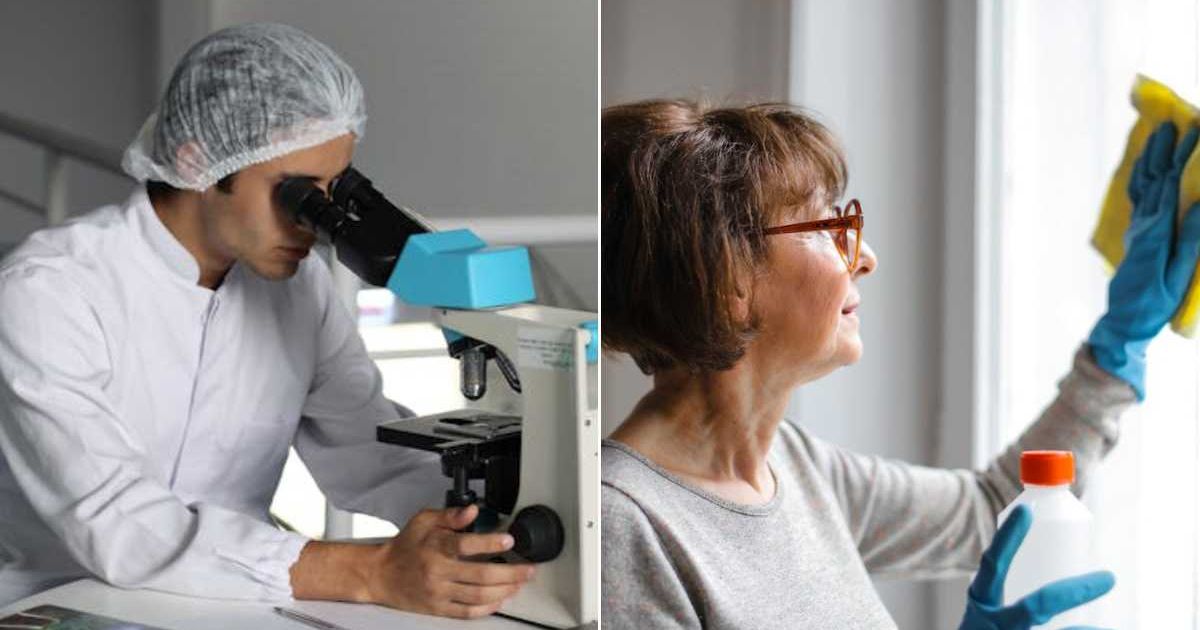Scientists conducted a 20-year study on long-term effects of using household cleaning products—the result was alarming

A few daily life functions have to be performed by almost every person. Cleaning is one of them. However, the cleaning products one chooses can actually make a significant difference to their health outcomes, per a study from the University of Bergen in Norway. The study was conducted over a long period of time and the findings suggested that cleaners who have used cleaning products for over 20 years can have reduced lung function. Regular use of cleaning products can be equivalent to smoking a pack of cigarettes every day.

"People who have worked as cleaners or done household cleaning for 20 years have reduced lung function equivalent to smoking 20 cigarettes a day, for the same period of time," Øistein Svanes, a PhD candidate at the Department of Clinical Science and the main author of the study, explained. Svanes pointed out that the findings were not really shocking, as quite a few tiny particles are released after cleaning. The research found out that cleaners had a 40 percent higher risk of developing asthma than others. It was conducted on 6000 participants based on the European Community Respiratory Health Survey. However, one cleaning product is the biggest culprit behind the problem.

Cleaning sprays are a major part of the problem, per Professor Cecilie Svanes, Department of Global Public Health and Primary Care, UiB and supervisor of the study. "The small particles from the sprays can remain in the air for hours after cleaning. The small particles can travel deep into the lungs and cause infections and ageing of the lungs," Svanes went on. "I would recommend using a bucket of water and soap. You will not need a lot of chemicals after all, when cleaning. Microfibre cloths may be just as effective." Dr. Partha Nandi, the chief health editor from WXYZ-TV Detroit, echoed the sentiment. He remarked that the study showed that women who cleaned once a week had reduced lung function compared to those who didn't.

"It is very important to choose cleaning products carefully, as the federal regulations are fairly poor," Dr. Nandi expressed. He too suggested that spray products should be avoided as they make it easier to breathe in the harmful chemicals. "Solid and liquid cleaners could be the safer options to use. Be sure to read the label and follow the safety advice." The best thing could be to use lukewarm water instead of the chemicals, accompanied by a microfiber cloth or an abrasive sponge. "Please keep your home well ventilated. Open a window if you can while cleaning." Dr. Nandi agreed that cleaning is a necessity and can't be avoided, but certain preventative measures can be taken to protect our lungs.
People shared their thoughts on the findings and quite a few revealed that they had switched to non-toxic alternatives in the comments section of the video. @Tasha-and-Friends wrote, "I don't know why these brands are still available on supermarket shelves. I'm glad that I switched to an eco-friendly, effective, safe and 100% biodegradable alternative. My family and I are safe and also our environment." @johnjohn668 commented, "Laundry products are dangerous as well. The scented ones are the most toxic."
